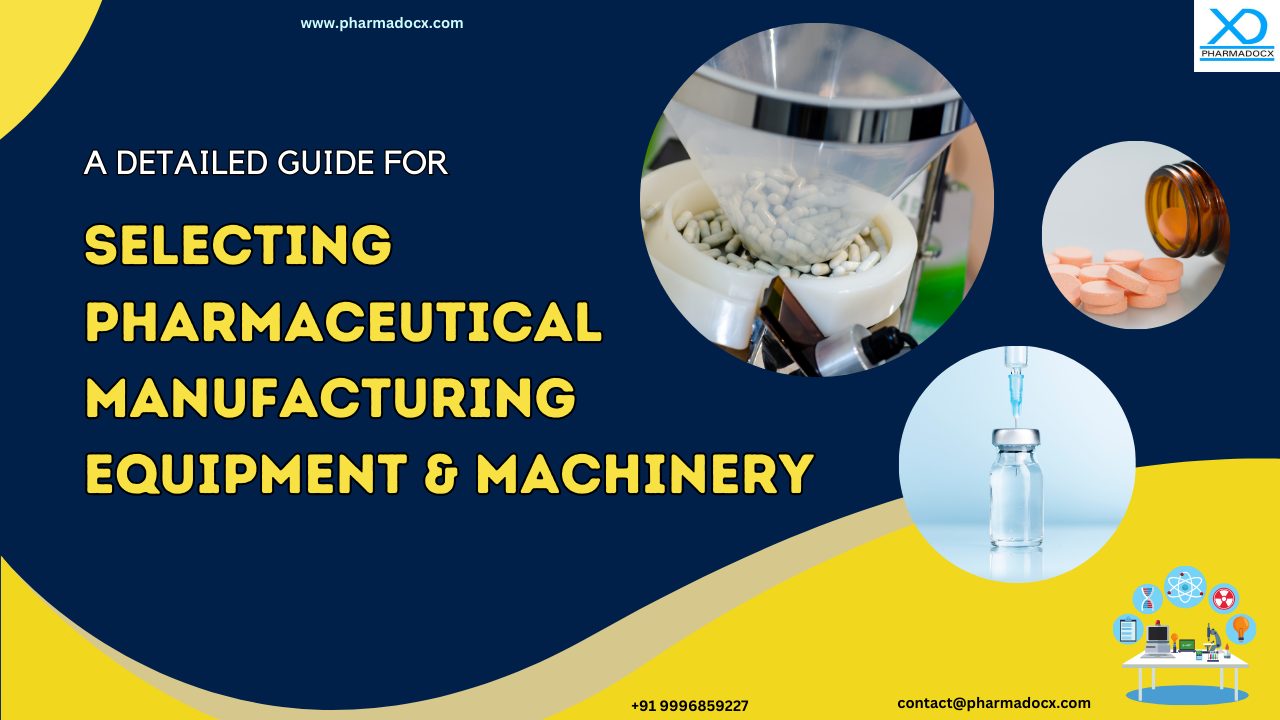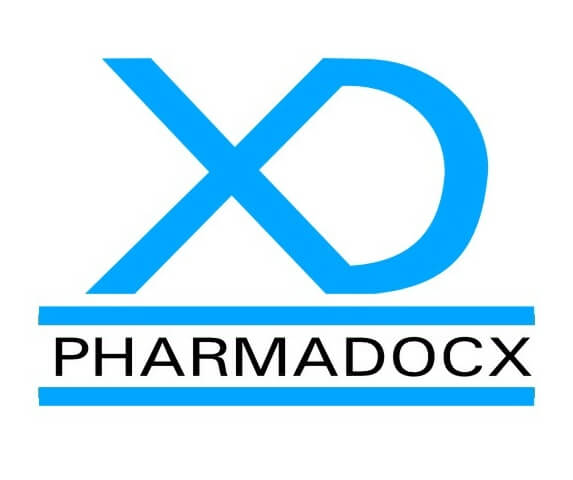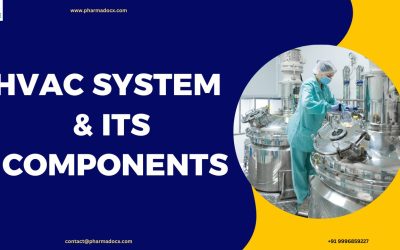Setting up a pharmaceutical manufacturing company is a daunting task. To establish a pharma company, you need to set up a manufacturing facility equipped with various machineries and equipment. It is important to choose the appropriate pharmaceutical manufacturing equipment and machinery that will be suitable for your company. Thus, you need to consider various factors when establishing a pharmaceutical manufacturing industry and choosing the right machinery and equipment. Hence, we have created this detailed guide for you.
Points to consider when establishing a pharmaceutical manufacturing industry
There are some basic requirements for establishing a pharmaceutical manufacturing industry. You need to acquire pharmaceutical manufacturing equipment for the manufacturing and production processes. Moreover, a pharma company has to constantly stay abreast of the latest and emerging technologies. By utilizing these technologies in your manufacturing process, you can stay ahead in the industry. Furthermore, it is important to pay close attention to process optimization for efficiency and scalability.
Some key requirements for establishing a pharmaceutical manufacturing industry:
- Pharmaceutical manufacturing equipment: This is the basic requirement for establishing a pharma industry. The operating team members should have a thorough knowledge of the operation principles, design, and roles of various equipment involved in different stages of pharmaceutical production.
- Quality control instruments: Instruments for monitoring the quality are vital for this industry. Maintaining the safety, efficacy, and consistency of the final products is the responsibility of the manufacturer. A robust quality control system is pivotal for the success of a pharmaceutical manufacturing industry.
- GMP and regulatory compliance: The manufacturing process has to comply with GMP and regulatory requirements. Hence, you have to ensure equipment qualification, validation, calibration, and maintenance to abide by GMP and regulatory requirements.
- Automation: Automation plays an instrumental role in the pharmaceutical manufacturing industry. Automation systems will enhance efficiency, productivity, and adherence to quality benchmarks.
- Equipment maintenance: Pharmaceutical manufacturing equipment maintenance procedures and systems are required for optimal performance, reliability, and compliance with regulatory standards.
Machinery and equipment used in the pharmaceutical manufacturing industry
Now that you have a basic idea of the requirements for establishing a pharmaceutical manufacturing industry. We have listed some examples of the machinery that are used to fulfil the aforementioned requirements.
Pharmaceutical manufacturing equipment and machinery
- Mixing and Blending Equipment
- Milling Equipment
- Granulation Equipment
- Drying Equipment
- Tablet Presses
- Encapsulation Machines
- Packaging Equipment
- Analytical Instruments
Note: Manufacturing equipment will vary for solid dosage forms (tablets, capsules), specialized formulations (creams or ointments), liquid formulations, and sterile products. Thus, when selecting the manufacturing equipment, the type of pharmaceutical product, production scale, and manufacturing processes, need to be considered.
Quality control instruments
Quality control instruments are used to evaluate various parameters related to raw materials, intermediate products, and finished products.
- High-Performance Liquid Chromatography (HPLC)
- Gas Chromatography (GC)
- UV-Vis Spectrophotometer
- Dissolution Tester
- Particle Size Analyser
- Karl Fischer Titrator
- Fourier Transform Infra-red Spectroscopy (FTIR)
- Chromatography-Mass Spectrometry (LC-MS, GC-MS)
- Atomic Absorption Spectroscopy (AAS)
- Stability Chambers
Note: When selecting the instruments, testing requirements, regulatory guidelines, and the characteristics of the products being analysed, need to be considered.
Automation and process control systems
These systems are used to reduce batch-to-batch variability and improve product quality, thereby enhance patient safety.
- Programmable Logic Controllers (PLCs)
- Supervisory Control and Data Acquisition (SCADA) Systems
- Distributed Control Systems (DCS)
- Batch Control Systems
- Process Analytical Technology (PAT)
- Robotics and Automation Tools
Measures used for equipment maintenance and to ensure safety
- Equipment Qualification and Validation
- Documentation and Record-Keeping
- Equipment Servicing, Preventive Maintenance, and Timely Repair
- Spare Parts Supply and Management
- Hazard Identification and Risk Assessment
- Standard Operating Procedures (SOPs)
- Personal Protective Equipment (PPE)
- Well-defined emergency response plans
- Comprehensive Training
These measures are required to maintain the reliability and performance of equipment and to ensure the well-being of personnel involved.
14 Points to consider when selecting pharmaceutical manufacturing equipment
Pharmaceutical manufacturing equipment form the backbone of the pharmaceutical manufacturing industry. Hence, we have listed some factors that you may consider while selecting pharmaceutical manufacturing machinery and equipment.
- Equipment suitability: The equipment should be suitable for the specific manufacturing process and the product to be manufactured. Also, materials used to construct the equipment should be compatible with the product to be manufactured and not react with the product. Furthermore, the equipment should seamlessly integrate with the manufacturing process.
- Reputation and reliability of the supplier: Buying a pharmaceutical manufacturing equipment is a significant investment. The quality of the machinery and equipment will impact your product quality. Hence, it is vital to select a supplier with a reputation for providing high quality machinery and equipment. Thoroughly evaluate the reliability of the supplier.
- Equipment regulatory compliance: The machinery and equipment to be purchased should comply with the industry regulations and GMP guidelines.
- Testing and validation of equipment: The equipment should be properly tested and validated by its manufacturer. Testing and validation of equipment should be per GMP requirements. Proper documentation of equipment validation is required for regulatory compliance.
- Cost of the equipment: The price of various equipment available in the market should be compared to find the one suitable for your budget. Initial purchase cost, installation, maintenance, operation costs, and long-term value of the equipment need to be considered.
- Equipment output capacity: The productivity of your industry will depend on the equipment output capacity. The output capacity of the equipment must align with the capacity of other equipment in the line to avoid bottlenecks. Hence, it is important to choose an equipment depending on your desired output capacity.
- Ease of cleaning, sanitization, and maintenance: Equipment cleaning and sanitization are important to prevent contamination and deliver high quality products. Thus, the equipment should be easy to clean, maintain, and sanitize. Check whether the spare parts for the machine are easily available.
- Energy efficiency: The equipment’s energy consumption will contribute to your expenses. Thus, it is important to choose an equipment which is efficient for cost savings.
- Equipment scalability: The production capacity may need to be scaled up or down depending on the market requirements. Thus, it should be easy to scale the equipment capacity up or down to accommodate the production requirements.
- Adaptability of the equipment: The selected equipment should easily be able to adapt to changes in dosage forms, formulations, and product specifications without major disruption in operations.
- Ease of use and reliability: The equipment should be easy to use for efficient operations. It is critical the equipment is reliable and should be able to function efficiently. This will reduce the downtime. Choose suppliers who provide user-friendly pharmaceutical manufacturing equipment and provide comprehensive training programs. Operator training program is vital for efficiently using the equipment and machinery.
- Technology and digital capabilities: Prioritize equipment with advanced technologies and digital capabilities for ease of use.
- Proper documentation support: The equipment supplier should provide proper documentation for installation, operation, and performance qualification. Documentation will be required for regulatory compliance and efficient operation of the machinery.
- Level of automation: The pharmaceutical manufacturing equipment should have a certain level of automation. Automation improves efficiency and compliance with quality benchmarks.
Thus, when selecting pharmaceutical manufacturing equipment, do:
- Define your requirements
- Evaluate potential suppliers
- Evaluate ease of operation of the equipment and machinery
- Understand the regulatory requirements applicable for your instrument
- Understand the total cost of the equipment, which includes purchase cost as well as installation, operation, and maintenance costs
- Request for proper documentation and validation reports from your supplier
- Consider ease of cleaning and maintenance
- Evaluate the scalability and flexibility of the equipment for future business expansion
You can use our guide as an easy reference when selecting pharmaceutical manufacturing equipment for your pharmaceutical manufacturing industry. We at Pharmadocx Consultants provide an all-encompassing service for starting a pharmaceutical manufacturing company in India. We will help you secure Form 25, Form 28, Loan license, Test license, Free Sale, WHO-GMP, and Market Standing Certificate. Our pharmaceutical manufacturing industry support is not limited to regulatory services. We also assist with ideal land and location selection and design factory layouts as per regulatory guidelines. Additionally, we provide machine selection support and service. Simply drop an email at [email protected] or call/Whatsapp on 9996859227 to get started.





